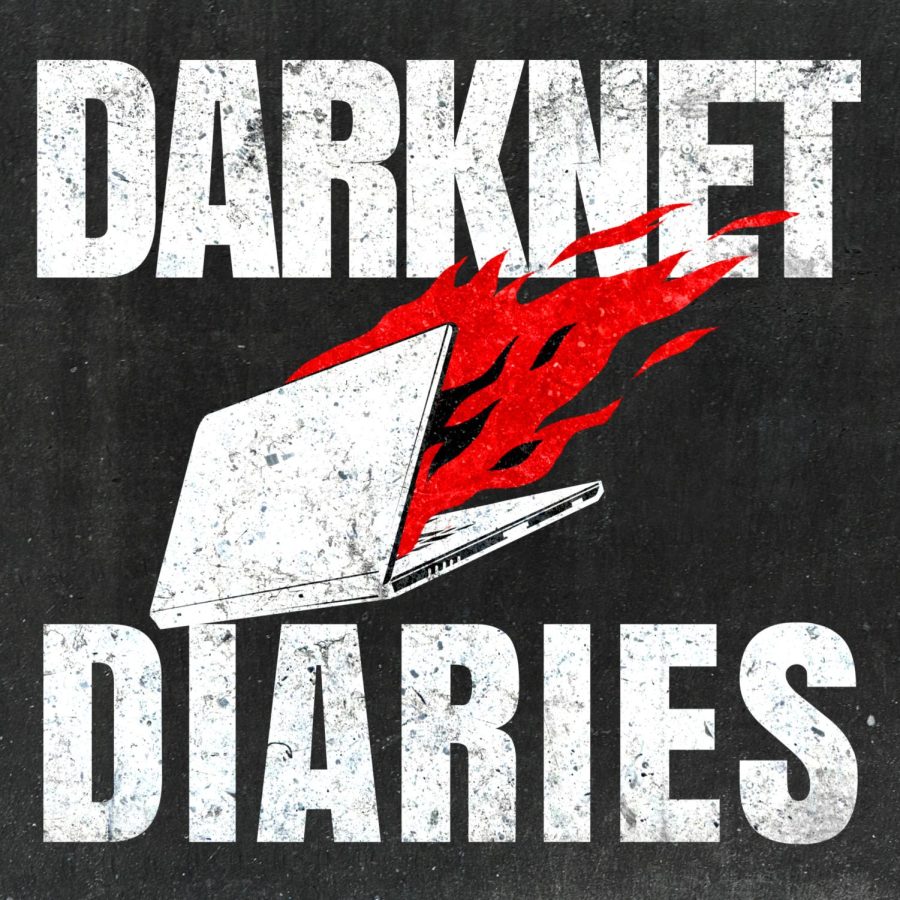“Darknet Diaries” Podcast Review
The sheer breadth of this hacking and cybercrime podcast has something for everyone.
In Liverpool, England, a bank pays a social engineer to sweet-talk her way into robbing it. In Maryland, a top secret set of hacking tools are stolen right out from under the nose of the NSA. In Saudi Arabia, a hazardous chemical plant suffers a mysterious— and malicious — mechanical failure.
These, true to their tagline, are stories from the dark side of the Internet. And “Darknet Diaries” is bringing them to light.

There’s nowhere that this podcast, created and narrated by Jack Rhysider, does not go. A former cybersecurity consultant, Rhysider is very familiar with the people and institutions of the hacking scene, and takes advantage of the indie podcast environment to explore them fully. Rhysider finds the unlikeliest of sources in the unlikeliest places, and tells their stories — whether humorous, curious or deeply disturbing — in gripping detail. Ethical security testing adventures (think secret agent-style romps breaking into buildings and computers), various misadventures of nation-state hackers, and vintage ‘greatest hits’ like the iconic hack of a Las Vegas casino by way of their internet-connected fish tank all feature regularly. But though some of the hacking hallmarks turn over, the main appeal of “Darknet Diaries” is that

it is as diverse and versatile as the Internet it covers, constantly overturning new stones to tell stories that won’t appear on the TV or mainstream news sites. Rhysider hosts NSA cryptologists, hacktivists, dark web oxycontin sellers, members of the Israeli army’s elite cybersecurity unit… and he gets all of them to talk, unfiltered. There’s nothing else like it.
It’s impossible to mention “Diaries”, by the way, without touching on what I feel is its magnum opus. “The Spy” and “NSO”, episodes 99 and 100, tell the story of the company NSO Group and its Pegasus spyware. Pegasus, discovered and patched against just last year, was capable of entering Apple phones entirely independent of the user and sold to governments around the world. (Notably, it appeared to be used mostly to track journalists and human rights activists.) In “Diaries”s take on the story, Rhysider interviews cybersecurity threat researcher John Scott-Railton, pursuing a lead about a new kind of spyware used to track private citizens; then, he interviews private investigator Igor Ostrovskiy, hired by the spyware company to surveil Scott-Railton and stop him before he could get any further on the case. The case of the shady spyware corporation and the whistleblower private eye is so cartoonishly malicious as to be almost unbelievable: and yet every word is true. Linked below, the story is high-stakes, masterfully edited, and utterly riveting from start to finish.
“Diaries” does, to some degree, suffer the problem all technical podcasts know very well: it has to assume how much you already know. Those familiar with the high-level technical details may find themselves overqualified for some explanations, while those not at least tangentially familiar with hacking culture can simultaneously find themselves confused. But I would urge any listener to stick with the show, though perhaps with Google by your side. For every bit of confusion or frustration, there’s a wealth of information that is both new and understandable, and that you’d never hear anywhere else. “Darknet Diaries” is not just fascinating entertainment, but an invaluable resource for learning more about the world around us.
There’s nothing better for understanding our information age— and, of course, the nasty secrets hiding behind it.





